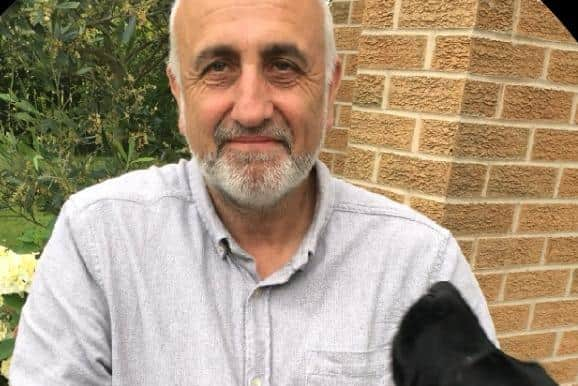In The Saddle with Anita Marsh: Welcoming back an old vet friend
and live on Freeview channel 276
If you think buying a horse is expensive, you should try their upkeep. You really don’t want to know their monthly expediture.
Put it this way - they are much better looked after than me.
Advertisement
Hide AdAdvertisement
Hide AdWell all our animals are, including our cats and dogs. They get the best of everything.


Meanwhile, I’m hanging about in old clothes with grey roots exposed whilst I stretch out my hair appointment.
Despite the money it costs to keep horses, (and the fact that I was having to pay for more of their expenses) it was actually a planned yearly booster rather than an emergency.
To top it off it was a nice surprise to see one of the familiar faces, Richard Coppack, who I’d thought had retired.
Advertisement
Hide AdAdvertisement
Hide AdIt turned out he had retired from practice, but had still kept busy taking an interest in developing equine medicine.
But now he’s back, after missing a hands on approach with animals, which is brilliant for the practice and good news for horses and their owners too.
Our paths first crossed around eight years ago when I had an issue with my two year old Appaloosa, Sully.
Richard came to see my young horse as he was rubbing his mane on literally anything he could find in the field. This was causing sores.
Advertisement
Hide AdAdvertisement
Hide AdRichard was super knowledgable and instantly knew to test him for a skin condition called Sweetitch. In fact he’s one of the leading vets in dermatology in the UK and I felt very lucky to have such an expert diagnosing him.
Richard naturally has a really kind way with horses and puts them instantly at ease. He’s ridden horses in the past, so I’m sure that helps but team this with his thirty years experience in practice and you can see why he’s a great vet; trusted by many.
It was great to catch up with Sully, and despite it being a routine call he wanted to hear how Sully was getting on and check in on his progress.
During the visit we got talking about how he got started out as a vet. I hadn’t realised he had initially begun working with pets and horses.
Advertisement
Hide AdAdvertisement
Hide AdHe found he loved working with horses. In 1999 he went on to open the Equine Vet Centre at Doncaster.
Richard brought on two other excellent vets Ann Walker and Damien Cain as partners of the practice. I’ve met both these vets during horse ownership and they’ve set a high bar for all other vets following them.
During his time at the practice, Richard explained he began to specialise more in skin conditions and went on to gain his dermatology certificate a few years later. It’s a clear passion of his which he’s become highly focused in.
I think what’s interesting is Richard retired after selling the practice in 2018, but after a few years in the horse medicine manufacturing side of things he’s missed the practice and returned back.
Advertisement
Hide AdAdvertisement
Hide AdIt’s clearly an area he loves, and with a shortage of vets since Brexit, it’s been a no brainer to return and once again be hands on with horses.
We had a chat about about what’s next on his list of things to do and it didn’t surprise me to hear he’s already set up a new specialist equine dermatology clinic based at the vets in Doncaster.
It’s a really exciting development in equine dermatology, enabling vets from other practices, to refer horses onto Richard and his team. A bit like a GP referring cases onto consultants.
In addition to this, clients can also self refer in conjunction with their own vet liaising with the clinic. Skin diseases and conditions can be difficult to diagnose and manage. Like humans, horses are not a one-size-fits-all approach.
Advertisement
Hide AdAdvertisement
Hide AdThe new clinic will collaborate with vet practices and horse owners to treat the full range of diseases including areas such as itching or pruritus (commonly known as ‘sweetitch’), allergic skin reactions or recurrent urticaria, localised or widespread swelling or nodular disease, scaling and crusting, skin diseases affecting the lower limb such as mud fever etc.
The next clinic will be on March 27. If you’d like more information you can contact the team at admin@equineveterinarycentre.co.uk
The practice will then contact you to organise.
In the meantime, I wish Richard good luck for the future and also a warm welcome back to practice. We’ll all be following your journey.
If you’ve enjoyed reading my equestrian column and would like to see regular updates on my ridiculous horses and their antics; please follow me on Facebook at In The Saddle - Anita Marsh or on Twitter at @inthesaddleblog.